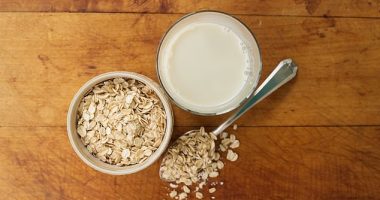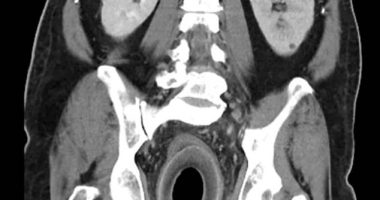Acne is normal and unavoidable—and let’s face it, it’s no picnic. For those with acne-prone skin, navigating the world of skincare ingredients can feel like a dangerous game. Synthetic fragrances, essential oils, and other seemingly harmless ingredients can trigger breakouts in the blink of an eye. But one ingredient that won’t have you dialing your dermatologist in a panic is hyaluronic acid.
Hyaluronic acid is known for its super-hydrating properties, but it could be a game-changer in an acne skincare routine. Are you curious if hyaluronic acid is actually good for acne? We spoke to board-certified dermatologists about everything you need to know about hyaluronic acid, including what it is and why it might be a game-changer in your anti-acne regimen.
Experts In This Article
- Kristina Collins, MD, FAAD, double board-certified dermatologist and founder of Foy
- Naana Boakye, MD, MPH, board-certified dermatologist and founder of Bergen Dermatology
- Rachel Nazarian, MD, FAAD, board-certified dermatologist at Schweiger Dermatology Group in New York
- Rebecca Marcus, MD, board-certified dermatologist and founder of Maei MD
- Tiina Meder, MD, a board-certified dermatologist and founder of Meder Beauty
What is hyaluronic acid?
Hyaluronic acid (pronounced “hi-ah-lew-ron-ic”), or HA for short, is commonly found in skincare products. Contrary to its name, hyaluronic acid isn’t an exfoliating acid like salicylic or glycolic acid. Instead, it exists naturally in your body, “found in high concentrations in the skin, connective tissues, and eyes,” Dr. Meder says. Dermatologists refer to hyaluronic acid as a glycosaminoglycan or a molecule that attracts water to the skin, per Dr. Meder. But in the skincare world, you’ve probably heard it called a humectant.
Is hyaluronic acid good for acne?
Buckle in because there’s no super-straightforward answer on whether hyaluronic acid is good for acne—it’s pretty nuanced. But to start, all five dermatologists interviewed for this piece confirmed that hyaluronic acid is safe for all skin types, including those prone to breakouts.
“Hyaluronic acid is generally safe for acne-prone skin since it is lightweight and non-comedogenic, minimizing pore-clogging risk, explains Dr. Meder. But it’s important to understand that while hyaluronic acid aids in hydration, it “doesn’t directly target the root causes of acne, such as excess oil, inflammation, or bacterial issues,” she adds.
Yet, hyaluronic acid might be the missing piece for those with persistent adult acne, particularly if your skin barrier is damaged. (You might have heard this referred to as a “compromised skin barrier” in skincare advertisements or articles.) According to Dr. Meder, a compromised skin barrier can lead to inflammation, irritation, and dryness, which is where hyaluronic acid comes in to restore moisture and balance to the skin.
But the benefits of hyaluronic acid for acne don’t end there. Dr. Nazarian adds that hyaluronic acid is often used with other acne-fighting ingredients or treatments. For example, she explains that hyaluronic acid can help alleviate some irritation caused by popular resurfacing topicals like retinoids.
How to use hyaluronic acid for acne
You can find hyaluronic acid in just about every skincare category, from cleansers and exfoliators to serums and creams. Four out of five dermatologists cited in this piece suggest prioritizing a hyaluronic acid serum in your daily skincare regimen.
However, Dr. Rachel Nazarian, the group’s only outlier, recommends a hyaluronic acid moisturizer instead (though there’s no reason to assume she’s against serum.) “I find it [hyaluronic acid] to be most useful when used as a base lotion or cream moisturizer to offset any dryness or irritation, both morning and night,” she explains. “It makes many acne regimens (think: retinoids) much more tolerable, increasing compliance and overall efficacy.”
Which to use? Ultimately, it boils down to personal preference. But if you’re looking for a potent formula, choose one with a higher percentage of hyaluronic acid. (Over-the-counter options typically max out at two percent.) Remember that not all skincare products disclose their percentage of hyaluronic acid. In that case, your best bet is choosing a formula where hyaluronic acid ranks high on the ingredient list.
Which acid is best for acne?
Remember: Hyaluronic acid isn’t technically an acne treatment, but it can indirectly help acne by soothing and hydrating the skin. According to Dr. Collins, exfoliating beta-hydroxy acids (BHAs) and alpha-hydroxy acids (AHAs) are your best bet for treating acne. “Salicylic acid is a beta-hydroxy acid best known for its acne-fighting capabilities,” says Collins. “It acts as a chemical exfoliant, effectively reducing sebum and clearing pores. It penetrates deeply and has an anti-inflammatory component that is very beneficial in treating acne.”
Dr. Collins also highlights glycolic acid as “the best known alpha-hydroxy acid,” noting its superior penetration compared to other AHAs like mandelic acid. “Overall, AHAs are beneficial for acne because they increase cell turnover and clear pores,” she adds.
Another dermatologist-recommended ingredient for acne is azelaic acid. “I like to use this for patients with a significant amount of post-inflammatory erythema or hyperpigmentation because this acid is particularly well suited for helping even the skin tone,” explains Dr. Collins.
Is it OK to use hyaluronic acid every day?
While it’s perfectly fine to use hyaluronic acid daily, the jury’s out on whether you’ll notice significant improvements in your acne. The great news is that—as mentioned earlier—hyaluronic acid is unlikely to clog pores or exacerbate acne,” Dr. Collins explains. And not to sound like a broken record, but it also can help reduce irritation, making it the potential missing puzzle piece for those using harsh acne treatments like daily tretinoin.
Will hyaluronic acid help acne scars?
In short, yes. Hyaluronic acid can help with acne scars. You may see temporary or permanent results depending on your chosen method. A subtle, short-term solution is using a skincare product containing hyaluronic acid. The ingredient “temporarily smoothes the appearance of acne scars because of the humectant action,” explains Dr. Collins. In other words, the ingredient temporarily plumps your skin so that your fine lines, wrinkles, and scars look less prominent. If you’re looking for more lasting results, she recommends asking a trusted board-certified dermatologist about combining hyaluronic acid with a CO2 laser treatment. Dr. Collins points out that research has shown promising combined effects in helping acne scars.
The best products with hyaluronic acid for acne
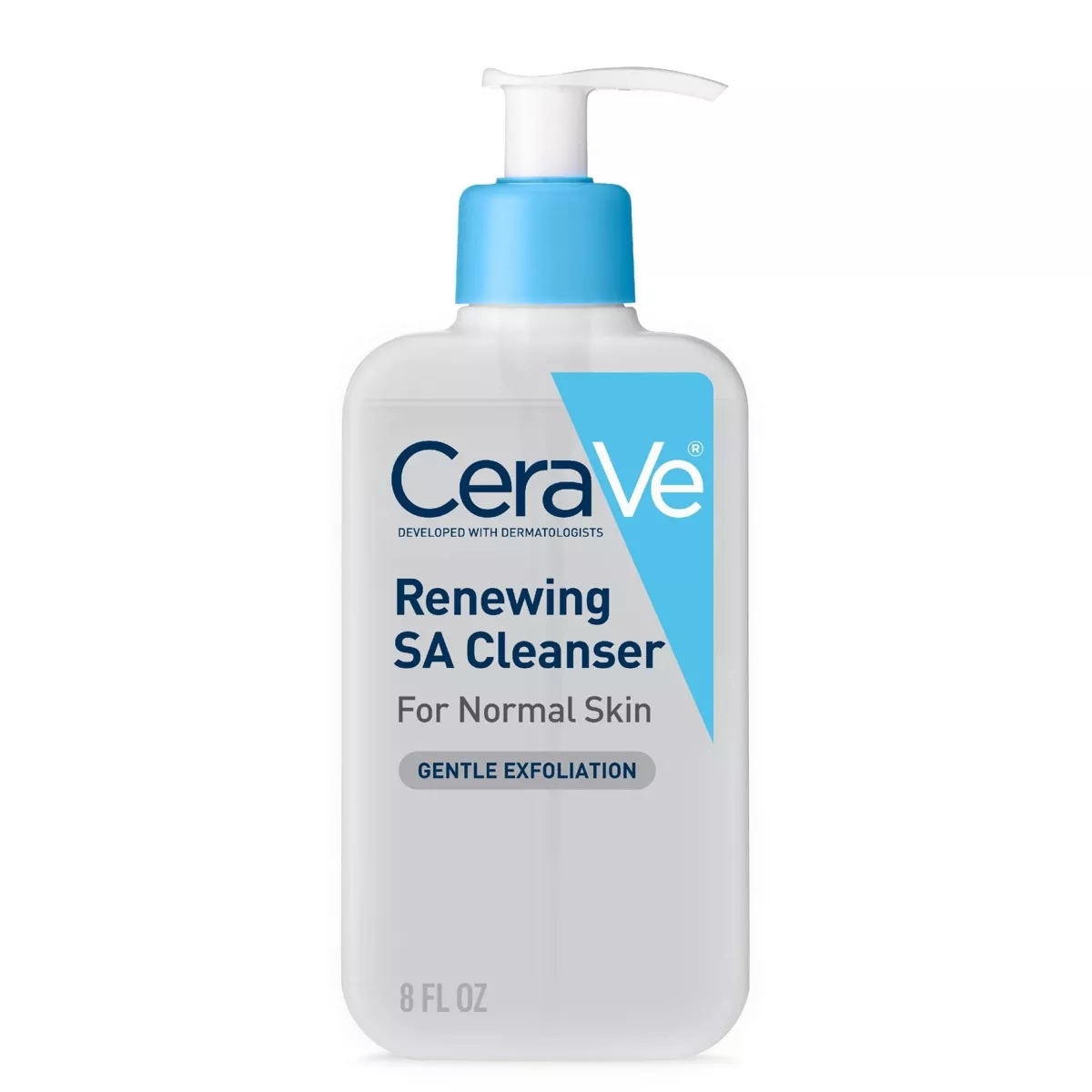
CeraVe SA Face Wash — $12.00
This cleanser is ideal for those struggling with acne because it contains hyaluronic acid, salicylic acid, and niacinamide, which “can help with acne-related and acne-treatment-related inflammation,” says Dr. Collins. Because this product is a wash (and thus only comes in contact with your skin briefly), “there’s no need to worry about it over-moisturizing acne-prone skin,” she adds.
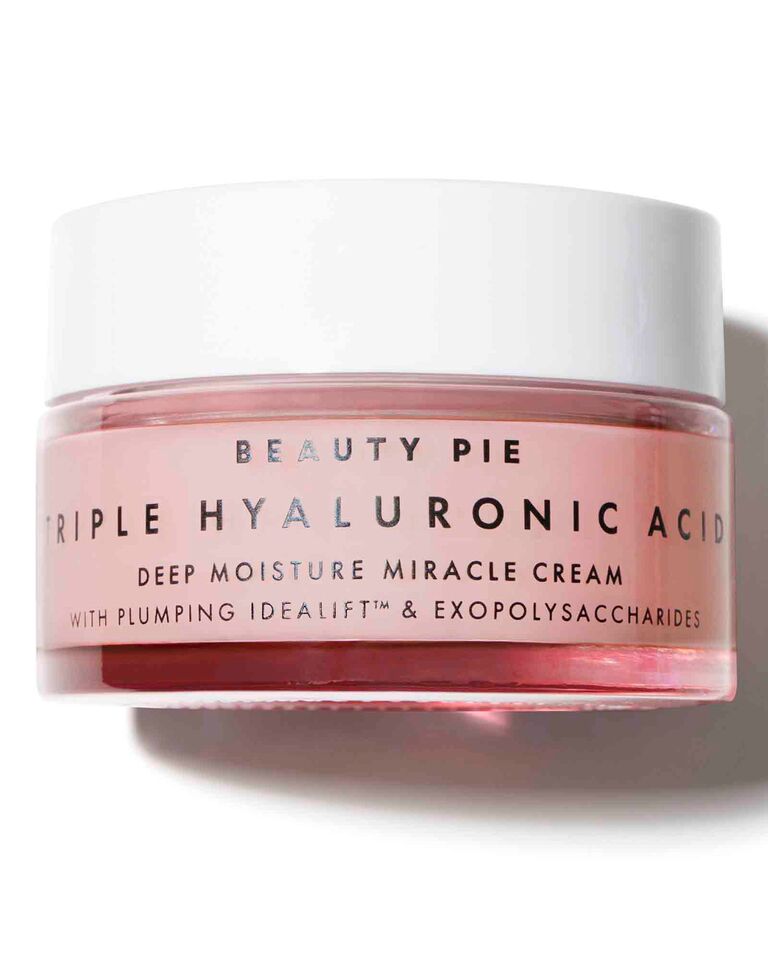
Beauty Pie Triple Hyaluronic Acid Deep Moisture Miracle Cream — $29.00
This face cream uses a trio of hydration: hyaluronic acid, glycerin, and squalene, plus phospholipids, which are fats that “can help with penetration into the skin because they closely resemble the structure of what is naturally found in the skin’s lipids,” says Dr. Marcus. It works alongside squalane, “a lipid found naturally in the skin barrier,” and, when applied topically, can help protect the skin barrier and provide hydration.
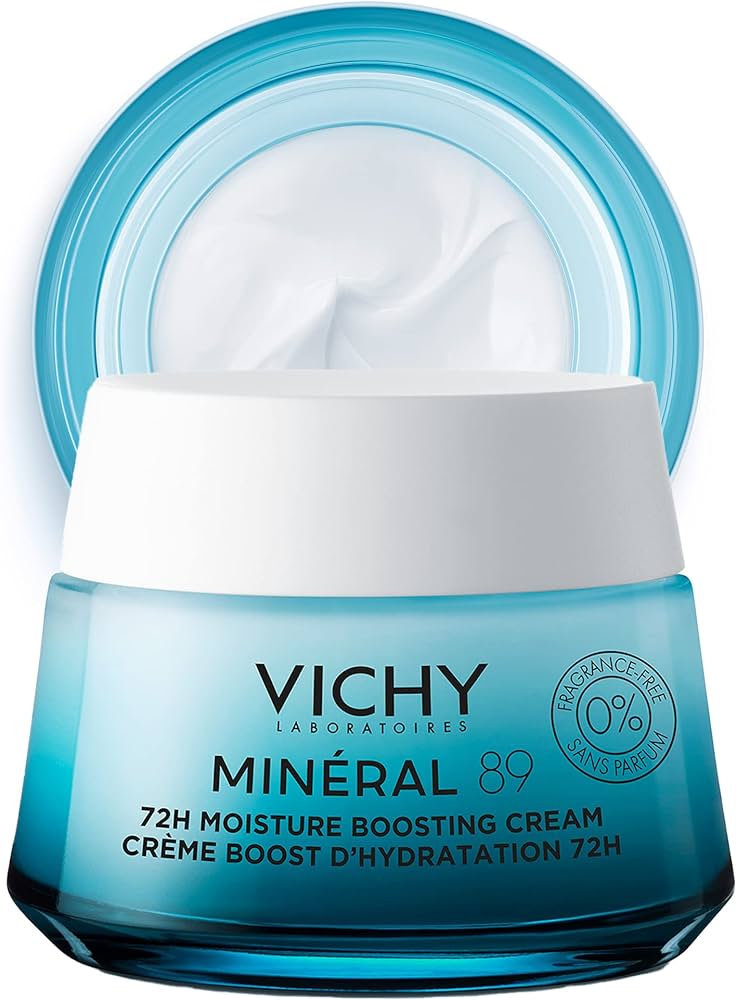
Vichy Mineral 89 Face Moisturizer — $32.00
Dr. Collins recommends this moisturizer because it “contains a healthy dose of hyaluronic acid for hydration, but it is extremely lightweight.” She deems it a “great product to use as a moisturizer over acne treatments like retinoids.” Given its super lightweight texture, she recommends it for people with oily skin. (A little FYI, per the derm: “It’s a common misconception that people with oily, acne-prone skin do not need to moisturize. In fact, if people with oily skin deprive their skin of hydration, they can produce even more pore-clogging sebum as their body attempts to maintain moisture.”)
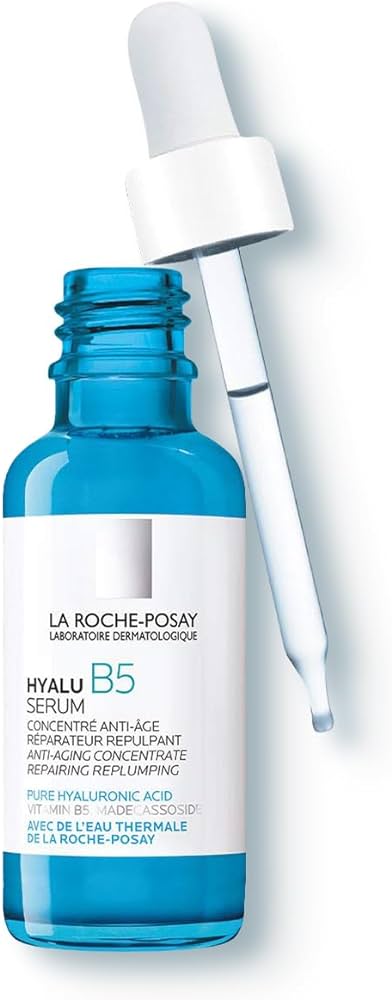
La Roche Posay HyalU B5 Pure Hyaluronic Acid Serum — $40.00
Dr. Marcus speaks highly of this serum, which uses two types of hyaluronic acid (sodium hyaluronate and hydrolyzed hyaluronic acid). The benefit of this is that they have different molecular weights, which means they penetrate the skin layers at different levels and, thus, deliver a more thorough hydration boost.
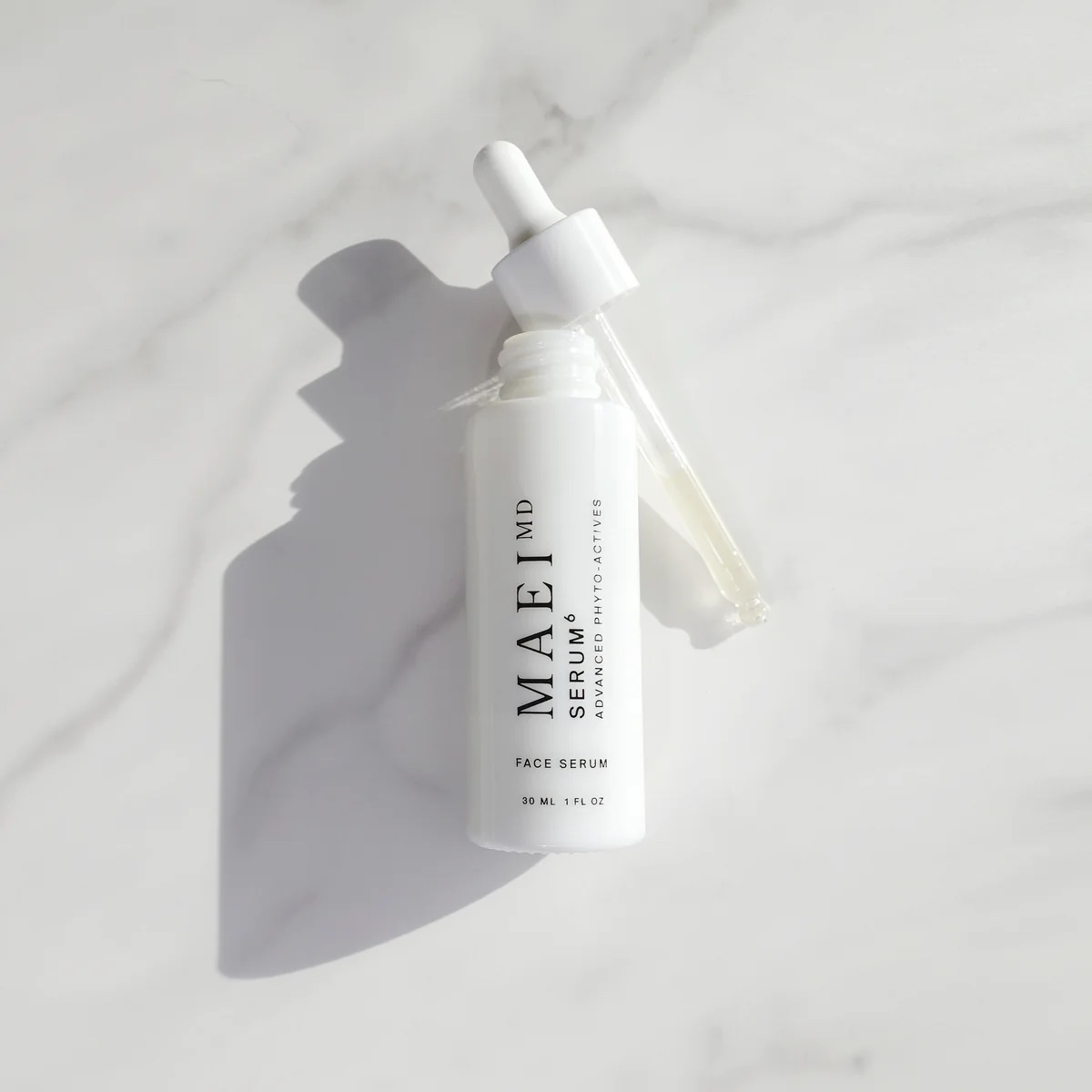
Serum 6 by Maei MD — $140.00
This is Dr. Marcus’s very own hyaluronic acid serum. Like the previously mentioned La Roche-Posay formula, it uses “different-sized molecules to penetrate different levels of the skin, helping with both hydration and plumping,” she explains. It works in tandem with brightening niacinamide and antioxidant-rich vitamin C.
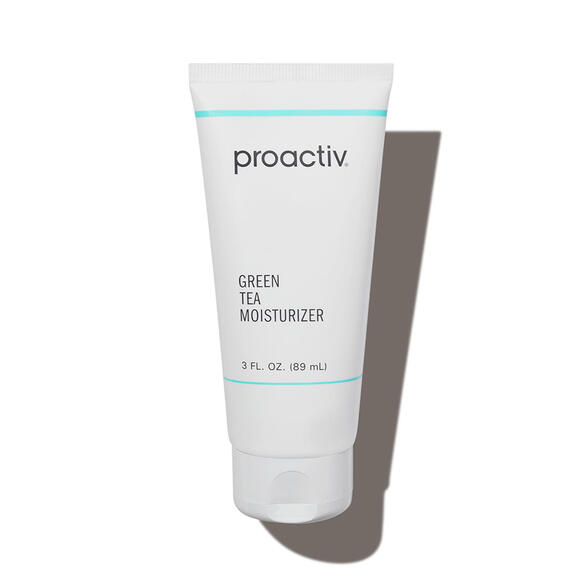
Proactiv Green Tea Moisturizer — $34.00
This moisturizer features a “cocktail of hydrating ingredients,” says Dr. Nazarian, who considers it one of her favorites. “It has hyaluronic acid and other natural moisturizers like squalane, allantoin, and glycerin.” Plus, it’s lightweight and specially formulated for acne-prone skin.
Final takeaway
Hyaluronic acid isn’t an acne treatment but can still support your acne-focused skincare routine. It may help ease irritation from treatments like retinoids, repair a compromised skin barrier, and even temporarily smooth acne scars. Unlike some exfoliating acids, hyaluronic acid is gentle and unlikely to clog pores, making it suitable for various skin types. Consult a board-certified dermatologist for a comprehensive acne treatment plan if you’re dealing with persistent acne. They can assess your skin’s unique needs and tell you how hyaluronic acid might complement your regimen (if at all).
Our editors independently select these products. Making a purchase through our links may earn Well+Good a commission.
Source: Well and Good


